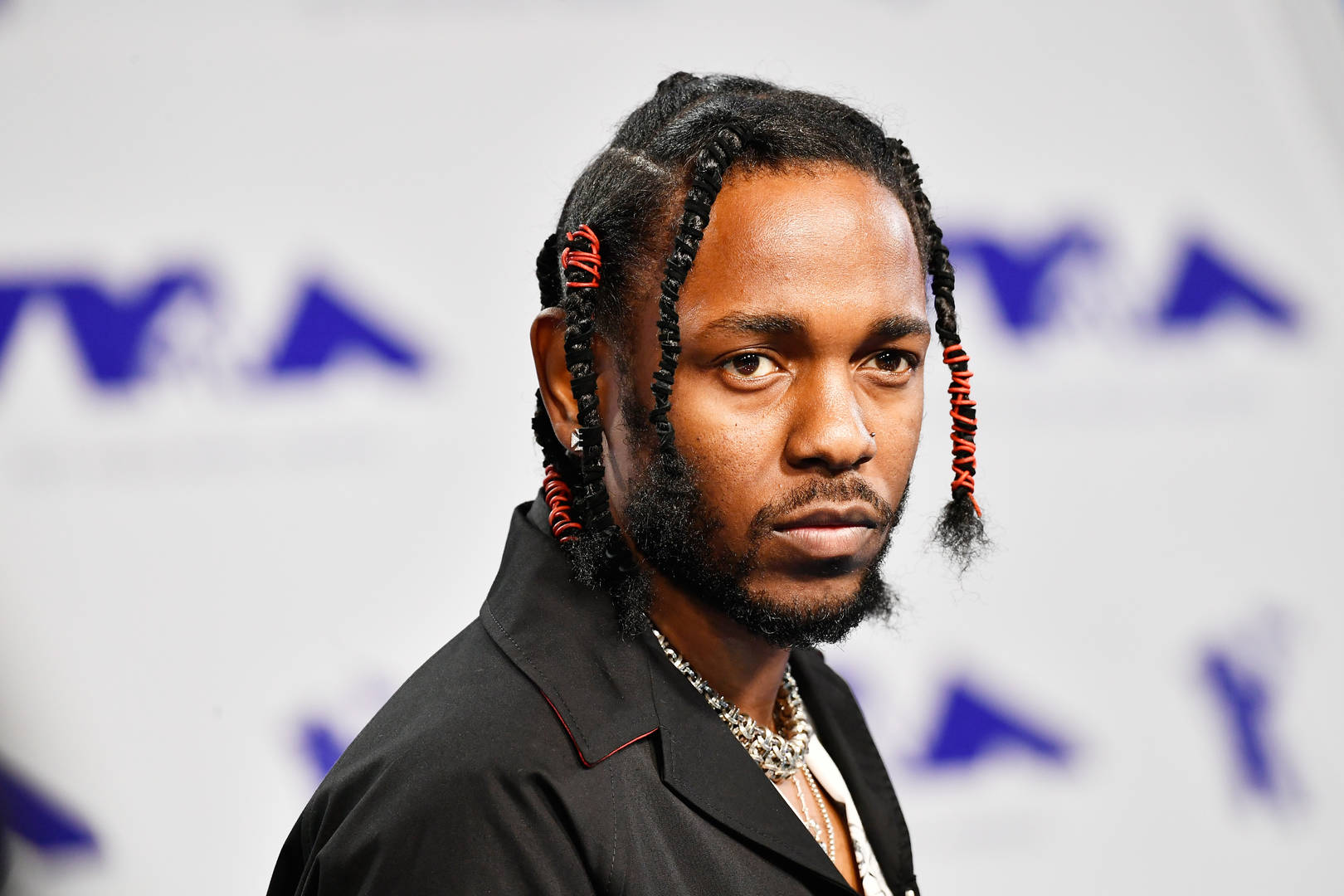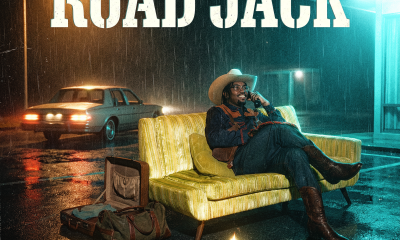Story
Which Kendrick Lamar Do You Want On His Next Album?

Kendrick Lamar is versatile. An examination of his three major-label studio albums, good kid, m.A.A.d City, To Pimp A Butterfly, and DAMN., reveals the vast scope of both his creativity and his technical prowess. In reality, all of the aforementioned can spawn deeper analysis, thus adding significantly to the replay value. Good kid for its postmodern approach to narrative storytelling. To Pimp A Butterfly for its examination of race and the ambiguous throughline hinting at a deeper metaphysical conflict. And the Pulitzer Prize-winning DAMN. for its dense and thought-provoking analysis of self, rendered through Kendrick’s most abstract lyricism to date.
While that heightened and challenging penmanship has elevated Kendrick Lamar into an elite, borderline mystical lyricist, it has also served to mask a simple, occasionally forgotten truth. Kendrick Lamar is exceptionally good at rapping and he is well aware of this. Whenever he allows his arrogance to seep in, the end result often makes for something truly incredible. People still talk about the impact of “Control” to this day. Free-flowing songs, unburdened by the need for thematic relevance allow Kendrick to really showcase exactly how far ahead of his peers he stands.
It’s hard to fathom, but the sight of Kendrick truly spazzing has become a relatively uncommon affair. To be fair, that helps enhance the occasions whenever they do occur — but seeing as Eminem and Lil Wayne may very well be his only rivals when it comes to the flow, it’s a shame he doesn’t show it off more frequently.

Kevin Winter/Getty Images
“If I’m getting on a track with Kendrick, I can never tell what the fuck he’s gonna do because he’s such a chameleon of styles, and he can fucking do pretty much anything, right? And he’s so proficient at it. He’s so good at it that you don’t know what you’re going to get. That to me is like a top-tier lyricist because it’s like you can get your ass kicked any day. Certain rappers get on a certain song and it just depends.”
– Eminem, speaking on Crooks Corner
It can’t be denied that each of his albums has prioritized conceptual linearity, and have been all the stronger for it. By creating distinct worlds, sometimes populated by a variety of different characters with distinctive worldviews, Kendrick is able to tap into different facets of his artistry. Sometimes, he manipulates his cadence to become another, leaving only the faintest shade ofKendrick Lamar the emcee. Other times, he enacts the musical equivalent of “reading the room,” opting to deliver whatever vocal style the beat invites. In many cases, as on DAMN’s genuinely emotional “LOVE,” Kendrick prioritizes creating a cohesive song over engaging in lyrical bloodsport. He understands the significance of each individual chapter in a novel; some require a frantic pace while others are slow-burners. It’s the separation between Drive and John Wick, two excellent films that succeed on entirely different merits — the former provokes deeper analysis on a visual and sonic level, while the latter is simply awe-inspiring to behold on an athletic level.
“A virtuosic song collection unified by its vernacular authenticity and rhythmic dynamism that offers affecting vignettes capturing the complexity of modern African-American life.” — The Pulitzer Board on DAMN.
Were Kendrick to line up an album composed entirely of high-intensity lyrical songs in the realm of “DNA,” “Deep Water,” “Control,” “The Heart Pt. 4,” or “Humble,” some might find themselves disappointed over the absence of a deeper meaning. After all, it’s the reason that Kendrick Lamar is the only lyricist to boast a Pulitzer Prize, a prestigious honor in literary circles who seldom turn eyes to hip-hop. Songs like “PRIDE” or “U” may lack the unleashed intensity rap purists desire from Kendrick, but the role they play in the pacing of their respective albums is invaluable. To turn his back on that particular brand of songwriting is a gamble. Especially when you consider the public scrutiny a socially conscious hip-hop celebrity tends to receive when perceived dismissive of current worldly events; ask J. Cole how those apples taste. On the other hand, however, low-stakes lyrical acrobatics may be the perfect remedy to the cynical and generally depressing news cycle that tends to permeate on a daily basis. As an added bonus, it never hurts to have a fire or two lit under the collective ass of the rap game at large.

Frazer Harrison/Getty Images
With Kendrick Lamar as adept at weaving complex, detailed tapestries as he is at straight-up murdering instrumentals, it’s easy to understand why so many grant him the esteemed title of Best Rapper Alive. But seldom does he bring both worlds together on an equal basis. With talk of a new album set to arrive by the year’s end, which style of Kendrick would you prefer to see — the unrestrained and cocky “Control” Kendrick, or his literary and sophisticated alter-ego “Pulitzer Kenny?”
Story
Kieran James Honors Memory with “Part of the Grind”

Singer-songwriter Kieran James delivers a devastating new single with “Part of the Grind,” a track to tackle the tangled emotions behind loss and memory. A love letter penned to a close friend who faced severe cognitive decline, the song’s emotional heft feels universal yet heartbreakingly personal.
Set to delicate instrumentation and achingly sung vocals, “Part of the Grind” is both a lament and an honoring, a means of remembering while addressing the unavoidable cost of time and illness. His voice floats, leaving room for silence and the long pauses that so often come with grief. But in that silence, there is warmth as well, a refusal to let memory be totally extinguished.
Resilience is also implied in the song’s title, a reminder that even in heartbreak, life goes on and holding the memory of someone stays with the rhythm of everyday living. it’s an anthem for anyone who has ever looked on witnessing decline, mixed sorrow with love.
In Kieran James’s “Part of the Grind,” we hear music as well as go behind it. He gives us room feel, to mourn, and to honor. In the process, he turns private pain into something achingly universal, a song for everyone who has either loved or lost.
Story
Esthy glows up with joy on new anthem “light it up”

In her latest song, “light it up,” singer-songwriter and producer Esthy from LA brings a vibrant and uplifting vibe that feels like sunshine in musical form. By mixing elements of playful country with polished pop sounds, she creates a track that’s all about having fun and enjoying life.
Esthy’s singing truly shines, showcasing a lively and confident style. There’s a playful tone in her voice that makes the lyrics feel friendly and inviting, encouraging you to set aside your worries and immerse yourself in the moment.
“light it up” radiates energy and is lively and bright, featuring catchy guitar riffs and upbeat rhythms that draw you in right away. If you enjoy artists like Anne-Marie or OneRepublic, you’ll love this song, and Esthy adds her unique flair, making it special and memorable.
Esthy has a talent for creating catchy melodies, and with this one, you’ll find yourself humming throughout your day. Esthy is here to spread joy, inspire energy, and make music that connects with you instantly. This track is designed to remind you of your true unstoppable nature, and Esthy lights it up.
CLICK HERE TO STREAM Esthy’s “lights it up” on Spotify.
CONNECT WITH Esthy | Instagram | TikTok |
-

 Artist Spotlight6 days ago
Artist Spotlight6 days agoGOODTWIN shares reflection with indie-pop single, “Soak It Up”
-

 Artist Spotlight4 days ago
Artist Spotlight4 days agoSAMSARA transforms quiet heartbreak into a modern rock journey on latest release “mrs. porter”
-

 Artist Spotlight4 days ago
Artist Spotlight4 days agoTom Woodward exposes the dark side of modern idol worship in latest release “PHONEY MESSIAH”
-

 Artist Spotlight4 days ago
Artist Spotlight4 days agoMORPHEUS VON DOBENHAUSEN lets go of the chaos, dancing steady soft and slow in latest release “GOODBYE CHAOS”
-

 Artist Spotlight4 days ago
Artist Spotlight4 days agoSkillMusicsa speaks in silence when love fades with latest release “How Could You”
-

 Artist Spotlight4 days ago
Artist Spotlight4 days agoSavvie steps out with an anthem of power and perseverance on latest release “Incredible”
-

 Artist Spotlight2 days ago
Artist Spotlight2 days agoBilly Chuck Da Goat turns walking away into a bold statement in latest release “Road Jack”
-

 Artist Spotlight2 days ago
Artist Spotlight2 days agoMamas Gun and Brian Jackson shines light on the truth on latest release “DIG!”

